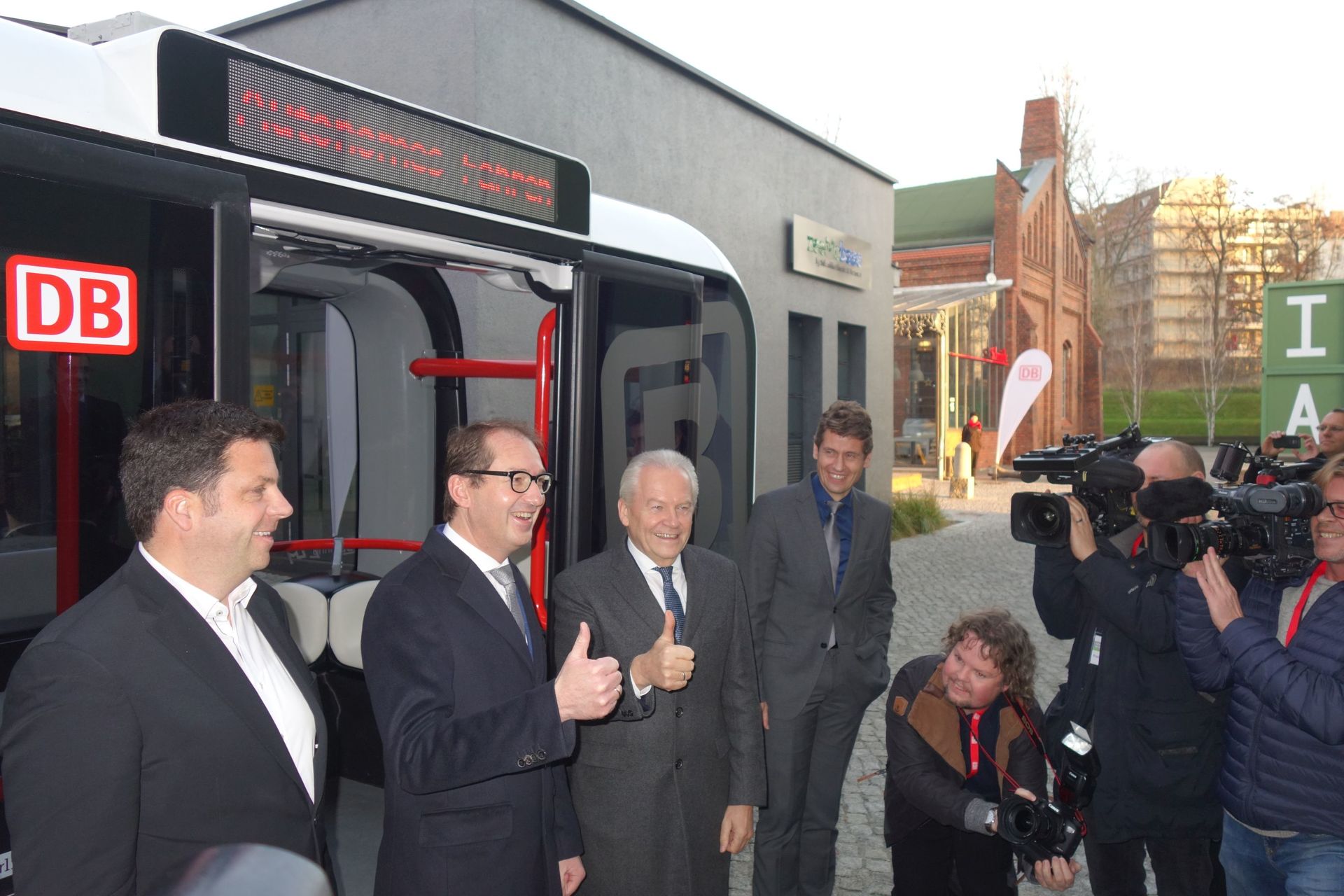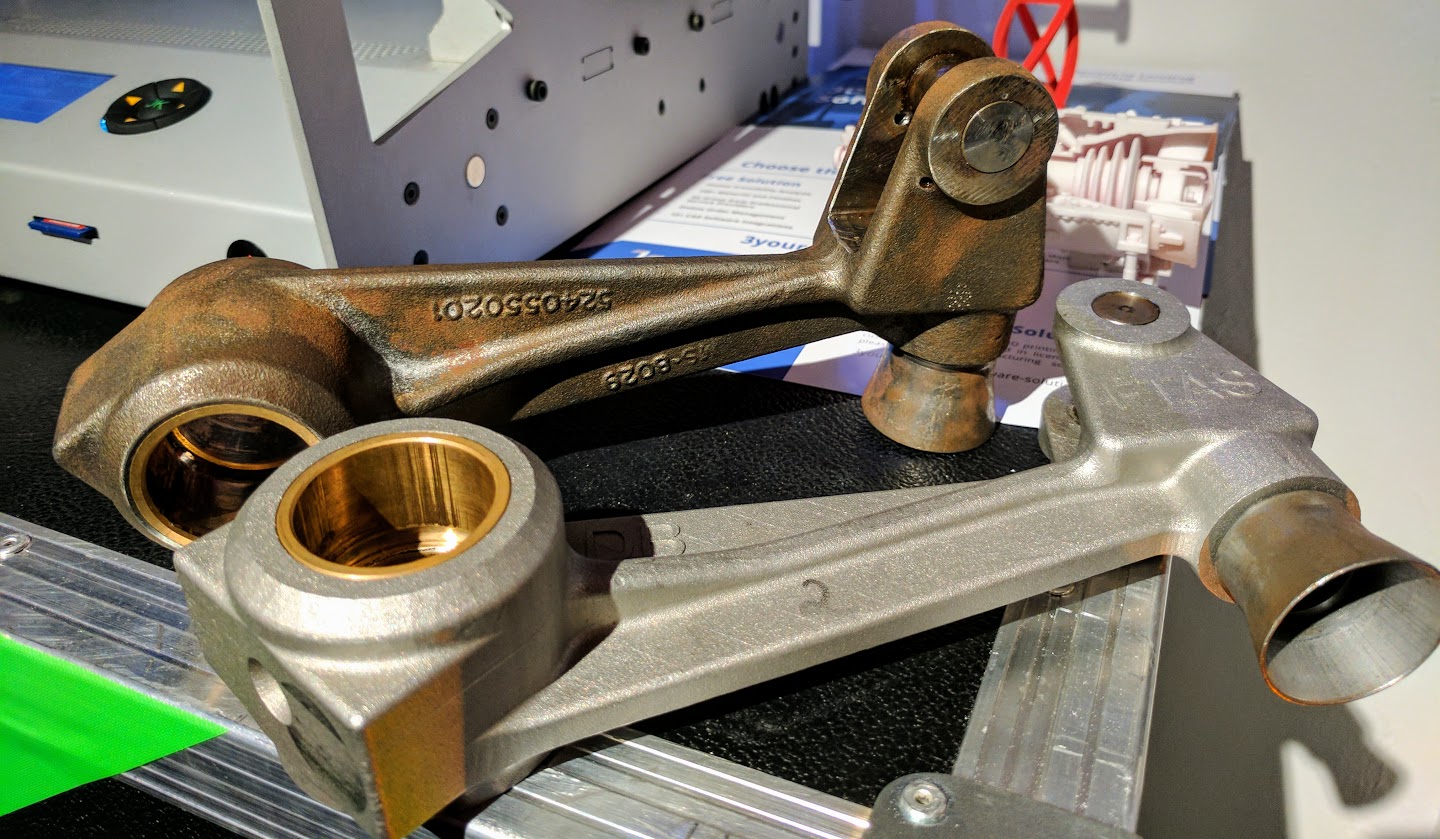Local Motors and German rail company Deutsche Bahn bring 3D printed self-driving vehicle Olli to Germany in a new trial. The six-month long pilot programme established by Innoz, Deutsche Bahn’s Research & Development company, will take place in Berlin at the Euref Campus. During this period, Local Motors expect the vehicle to transport up to 100 people per day.
German Transport Minister, Alexander Dobrindt, recently called for a new government department focusing on the digitalisation of the country. The Minister was present at the launch of Olli in Berlin. The 3D printed vehicle operates using LIDAR scanning to view its surroundings and is able to drive up to 20 kilometres per hour. Transporting up to 12 people at a time, Local Motors believe Olli will be the future of transporting around busy cities as it makes good use of the small space and removes the need for a driver.
Deutsche Bahn are increasingly implementing additive manufacturing. As early adopters of Local Motor’s self-driving concept, Deutsche Bahn are also looking at 3D printing spare parts with German software company 3yourmind. The mutinational company operates railways across the globe and by integrating 3D printing into the supply chain they expect to make substantial savings in areas such as inventory.

The Euref Campus
Olli is now operating to and from Euref Campus, Berlin to the nearest Deutsche Bahn rail station from 9am-5pm Monday to Friday. The campus is a hub for workers, with 100 companies and 2,500 employees, who work in ‘energy, sustainability and mobility industries.’ One of these companies being Innoz themselves. The client clearly believe that autonomous vehicles like the Olli may be a solution to moving workers to-and-from the workplace and the aim is to implement more of the vehicles following this trial.
This is shown as Transport Minister, Alexander Dobrindt, spoke during the launch about how the country is keen to support the use of autonomous vehicles,
Germany must be a leader in automated and networked vehicles. This also applies to public transport and freight transport. By testing the autonomous bus shuttle, DB is collecting important insights for new, intelligent business models and is expanding its know-how as a modern mobility and logistics provider. It is thus laying the foundations for the transport of the gigabit company.

Deutsche Bahn and 3D printing
Deutsche Bahn are looking at additive manufacturing as a solution to their rail business as it would enable them in the future to 3D print parts on-demand rather than having to store them in a warehouse. This six month trial therefore enables DB to assess the capabilities of a vehicle using 3D printed parts in addition to Local Motors testing the functionality of the vehicle.

Featured image shows Deutsche Bahn Chairman Dr. Rüdiger Grube and Transport Minister Alexander Dobrindt. Photo via Euref Campus.



